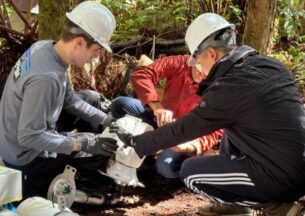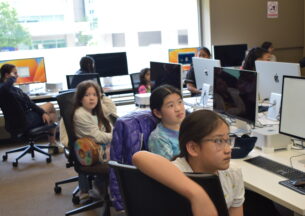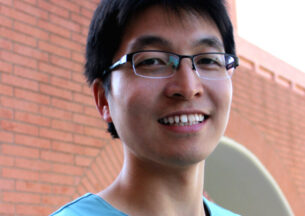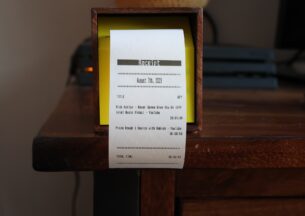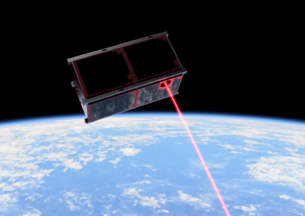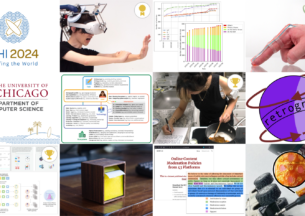CS Alumni Spotlight: Former Student Andrew McNutt Talks Visualization Career, Lessons From UChicago, And The Road From PhD to Tenure Track at University of Utah
Thanks for meeting with me, Andrew. I’ve heard wonderful things! Tell me a little bit about your background.
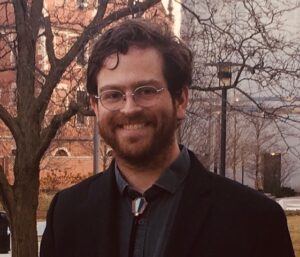
Yeah, I went to Reed College in Portland for my undergraduate degree. I majored in physics, which was a great way to learn all about the biggest applied math project ever: physics. But I got the end of the degree, and I found myself not that deeply concerned with the mathematical physics that I was working with. Instead, I had found myself drawn to making visualizations and other ways of explaining things clearly. I just wanted to learn to make things that people could actually use, and so this led me out of academia (briefly) and into industry. I went to a boot camp called App Academy the summer after I graduated, and that propelled me into the tech industry.
What part of the tech industry did you end up working in?
Heading out of college I wanted to get into visualization-centric software engineering, and I was lucky to get to pursue that goal pretty immediately. It was sort of a way to understand what visualization work looked like in a professional capacity, rather than as pseudo practicing scientists. While in tech I worked at two companies, one with the amusing title of Collaborative Drug Discovery. Then I worked at Uber, where they had a really wonderful visualization team at the time. I got to work on a bunch of fascinating products, like an AB testing platform, mapping systems, and a bunch of business intelligence-type tools. But as I was doing this work I found myself having these sort of big knowledge gaps, and how I understood the nature of things. Realizing this, I kind of wanted to learn how to learn better, and just moreover do research. That led me into grad school in 2017 at UChicago.
What made you choose UChicago?
It was a combination of things. There were a couple of people’s work who I was really attracted to and then the opportunity to be in Chicago itself was really appealing. I had never lived in the Midwest before, and Chicago seemed like a really cool and beautiful city to get to be in for a few years. (that belief was definitely correct! It’s just a wonderful place to be).
Agreed! What was your overall experience here like?
Oh, from an academic perspective it was definitely one of growth. I was experiencing personal growth that was mirrored by a department that was also growing really quickly. Like when I came in, it seemed like they were just hiring so many Professors a year. And, you know, it sort of felt like I was sort of growing up really quickly in the same way that the department was.
That’s interesting. What did that fast paced growth teach you?
It really taught me how to pick up conversational expertise in a lot of different areas. The fields that I primarily work in, HCI and data visualization, end up playing the support roles in a lot of different other contexts. So, that fast growth combined with a tool-centric mindset meant that I needed to get good at being able to gel into any of the varying situations I found myself in.
Did you have any interesting opportunities that you credit to your time here?
Well, I think one of the things that I was the biggest fan of is the particular set of circumstances that gave me a huge space of academic freedom to go explore and do outsider work in different topics. I’ve been lucky to be able to work in a lot of really critical and reflective areas. For instance, I have a string of research that looks at zines, covering things like what might visualization do for zines, and what can zines do for academic publishing more generally. I don’t think most other situations would have allowed me to do that. It was a lucky combination of things. In particular, the CAPP program was really generous; in exchange for teaching several courses I was lucky to be supported across a number of quarters. In conjunction with the generous and kind guidance of my advisor, Ravi Chugh, I was really fortunate to be able to explore a range of areas and topics.
You mentioned that there was some work you were really interested in before you applied. Can you tell me about that?
Yeah, totally. I was really excited about Gordon Kindlmann’s Algebraic Visualization Design theory, which is basically a theory that retries to help you answer questions like, “Is the visualization good?”, and provide some sort of low level theoretical tools to ask that question in a concrete way. It was really mind blowing to me. I remember being at Uber and being like, man, what does it mean you can analyze a visualization? I was just so confused by that, and I wanted to learn more about it.
Would you say that research ended up being as influential as you thought it would be once you got here?

Yeah, that theory ended up providing the backbone for a large part of my work. But after getting here, I was really bowled over by Ravi Chugh’s Sketch-n-sketch systems, and the thoughtful way he took a big programming languages theory and then grew it into something that matters to end users. You can have these cool theoretical ideas, but it’s hard to translate them into the real world. Seeing Ravi’s mastery of that really was an eye opening experience. So those two things in tandem, I think would probably be the sort of centerpieces of my education.
Now you are completing your postdoc, is that correct?
Right. As you’ve probably caught by now, I have a pretty broad set of interests. My postdoc is continuing to touch on a set of those. I’m doing what you might call a pre-job sabbatical where and I’m getting to learn from people who are really at the top of their field on how to do a lot of the basic things it takes to be a professor: how to write grants, how to mentor students, and how to just be a good professor.
How did you get the postdoc with such highly influential people?
My advisors, Leilani Battle and Jeff Heer, were interested in collaborating in this broad space of topics that I tend to work in. The postdoc is sort of centered around developing visualization theory works in a more systematic way than we’ve already done.
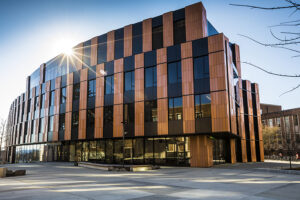
Are you working in a visualization lab?
They phrase it as the interactive data lab. So the ideas aren’t just bound to visualization, but there are many ways in which you might interact with data visualizations. It’s been around for just about 10 years, I think. They’ve been extremely productive.
Amazing! And I hear you’ve also landed a tenure track position. Tell me about that.
That’s right. I am going to be starting as an assistant professor at the University of Utah next summer, where I have an appointment at the Kahlert School of Computing, but also at the Scientific Computing and Imaging institute (SCI). SCI has a really long connection with visualization. It’s been around for about 30 years, and it’s been extremely productive and influential in the course of that period. I just feel astonishingly lucky and honored that they’ve decided to let me be part of that history. Right now, there’s a really big crop of people within the part of visualization that I work in. So I feel really lucky that I get to bring my like, weird conglomeration of obsessions about programming languages and vis theory to help work on these bigger topics.
Do you have any advice for current students maybe looking to take a similar route into academia?
My biggest advice would be to mess around as much as possible. There’s a lot of different parts of academia and each of them can be very interesting, but it’s hard to evaluate how good you’ll be at it, or how much that’s useful in each of these fields unless you try. I really benefited strongly from wandering through a multitude of areas like visualization, databases, and programming languages. It’s been wonderful getting to dabble. But I cannot stress enough that it is beneficial to move outside the kind of the work that you’re set to do. Go find new things that are cool and mess around with them.




